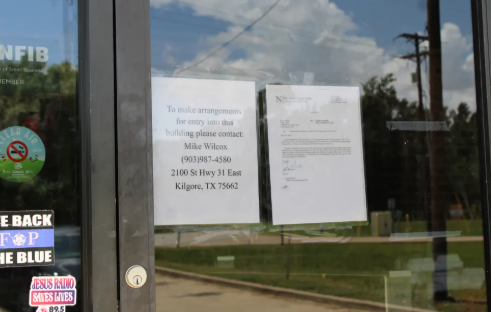The BBB does more than just resolve customer complaints
Published 7:52 pm Sunday, December 13, 2015
Although for more than 100 years, the Better Business Bureau has helped people find and recommend businesses, brands and charities they can trust, occasionally questions are received about the services the BBB provides.
The following are answers to some of the most commonly asked questions.
Trending
The BBB is a non-profit organization which uses a multifaceted algorithm to assign rankings to businesses, charities and nonprofit organizations.
Consumers turn to the BBB’s website 130 million times per year to research companies before they buy. The BBB website provides basic information on businesses, their BBB rating as well as detailed information about customer complaints.
The BBB provides business profiles on all businesses, whether or not they are BBB accredited. A more informed community is a stronger community.
What does the BBB do besides resolve customer complaints? BBB does much more than help settle disputes. Through the support of Accredited Businesses, BBBs work for a trustworthy marketplace by maintaining standards for truthful advertising, investigating and exposing fraud against consumers and businesses and providing information to consumers before they purchase products and services so that they can make wise purchasing and donating decisions. In 2014, only 1,200 out of 700,000 contacts to BBB Serving Central East Texas were attributed to complaints.
What is the ratings system? BBB ratings, A+ (highest) to F (lowest), represent the BBB’s opinion of how the business is likely to interact with its customers. The rating is based on information obtained about the business, including complaints received from the public. BBB seeks and uses information directly from businesses and from public data sources.
BBB ratings are not a guarantee of a business’s reliability or performance. The BBB recommends that consumers consider a business’s BBB rating in addition to all other available information about the business.
Trending
Does BBB report only on accredited businesses? No. BBBs review accredited and non-accredited businesses alike. Reviews only note a business’ accreditation status.
What does it take to join? Companies who apply to become accredited must maintain a BBB rating of B or higher before joining, and must operate with integrity to maintain their accreditation. Not all companies are accepted. BBB will look at a range of factors when making the decision, including how long the company has been in business, whether they have any complaints on file, how well they have handled those complaints, the reputation of the owners or principals, etc. They will also look at the company’s website, its advertising and its marketing materials to make sure it is truthful in its dealings with the public. If the business is in an industry that must be licensed, the BBB will require proof of that, as well.
If BBB funding comes from businesses, how does the organization ensure fairness to consumers? The BBB’s value to the business community is based on marketplace neutrality. Our purpose is not to act as an advocate for businesses or consumers but to act as a mutually trusted intermediary to resolve disputes and provide information to assist consumers in making wise buying decisions. Businesses have supported the BBB for more than 100 years because a trustworthy marketplace is in everyone’s best interest.
For more information on how to be a savvy business owner, go to bbb.org. To network with BBB Accredited Businesses and other professionals, join our LinkedIn group or follow us on Facebook and Twitter.
Mechele Mills is the President/CEO for the Better Business Bureau Serving Central East Texas. Prior to her role at BBB, she led and consulted organizations of all sizes, managing operations, sales marketing, and personnel for both the public and private sector. She holds a Bachelor’s in Journalism/PR from the University of Texas at Tyler and a Master’s in Business Administration from Baylor University.







